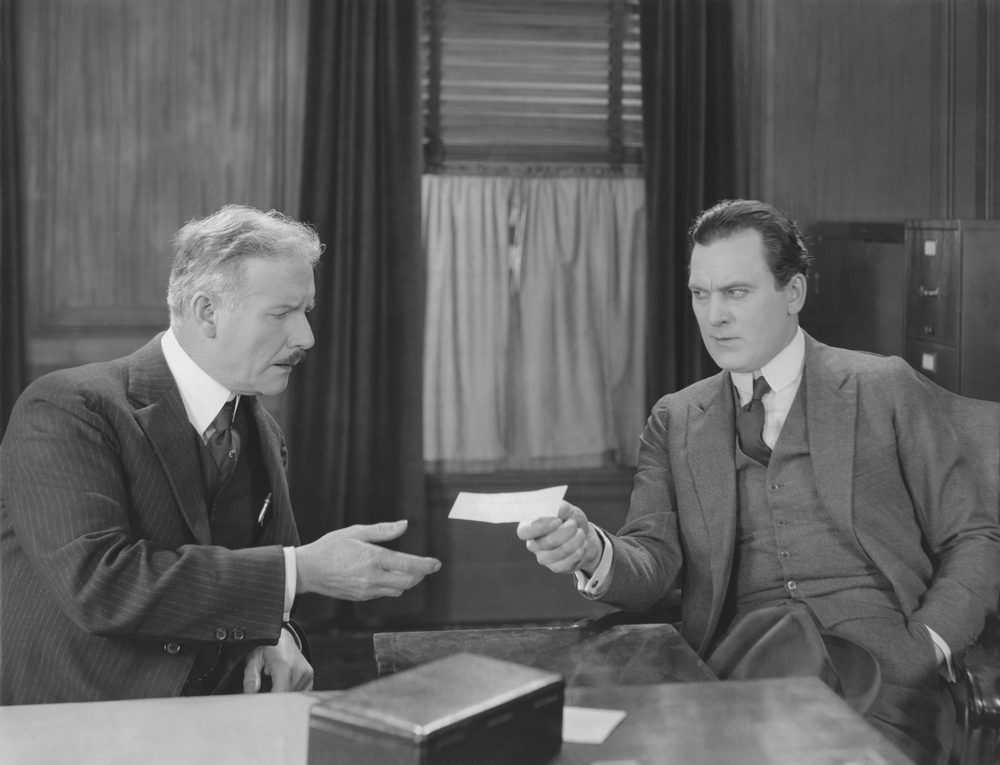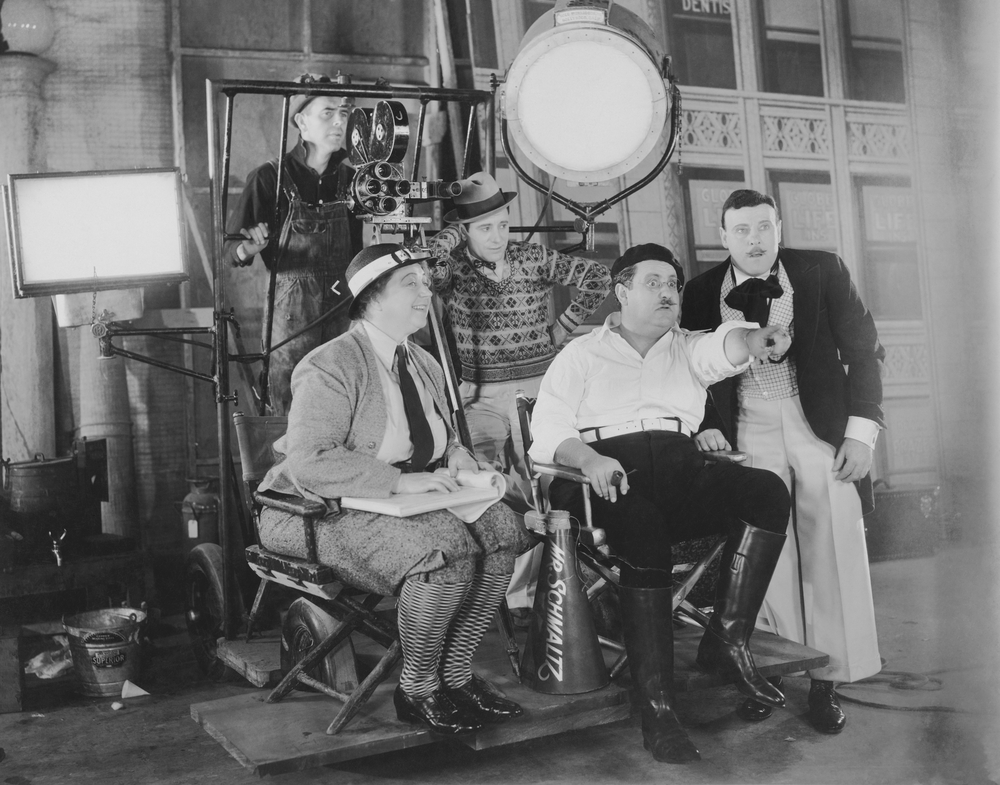California Film and TV Distribution Attorney Sebastian Gibson

California Film and TV Distribution Attorney Sebastian Gibson
Approaches to Distribution
Every producer knows how important it is to obtain distribution for their project. Without it, a project is dead. But what are the different approaches to obtaining distribution and how is the playing field changing in the opinion of California Film and TV Distribution Attorney Sebastian Gibson?
Some producers try to line up distribution partners before production starts, if possible, or at least generate interest in them. Others wait until they have a final cut. Some focus on film festivals to get distribution offers. Others fragment their distribution approaches and seek out distributors for specific territories and platforms. There’s no one right way to do it and what works best for one type of film may not be right for another.
Some producers reach out to the film’s entertainment law firm to develop a plan for submitting their film to film festivals for a distribution sale. While the odds of obtaining large distribution deals are a thing of the past in most instances, utilizing an experienced entertainment law firm can still ensure that the presentation of the film avoids some serious missteps.
Film festivals can help or be a detriment to a producer’s film. Bad reviews, the result of a poorly conceived storyline, bad acting, editing that went awry, or other faults in the film are not the type of buzz a producer wants for their film. Mistakes can cripple a film’s launch and limit if not result in failing to receive any distribution offers. Applying to festivals before a film is ready to be viewed and judged, submitting to the wrong type of festivals for the film, not having an experienced festival team, and making bad distribution deal are just some of the mistakes a producer can make. Bad word-of-mouth after a festival screening is not the type of result a producer looks for.
The hiring of a distribution sales agent or rep hired in advance of any film festivals the film will be shown at is also a must. Discussing what distributors other producers have had experience with is something a producer should try to accomplish at the film festivals they attend.
Hiring an experienced publicist should be done accomplished long before a film is submitted to film festivals to give the publicist time to prepare and assist a producer with social media. A website needs to be created for the film, a Facebook page, trailers, a movie poster, and other materials created to have a cohesive advertising and publicity campaign formulated.
Producers know the importance of obtaining both domestic distribution as well as international distribution. For the latter, most producers choose to look to a reliable foreign sales agent and one with a track record of reliable payment. Foreign distribution deals generally are far too complex with foreign tax credit provisions and other payment structures for most domestic sales agents to be entrusted with the responsibility.

California Film and TV Distribution Attorney Sebastian Gibson
From Malibu to San Diego where California Entertainment Attorney Sebastian Gibson graduated from the University of San Diego School of Law, to his current offices in the Palm Springs area and Newport Beach to London where he has practiced law extensively, California Film and TV Distribution Attorney Sebastian Gibson is the right choice for all your entertainment film and television productions, projects in development and film and TV agreements for productions in the U.S., the UK and around the world.
With offices in the Palm Springs area where Live Nation will be opening a new arena in 2022 to Palm Desert to the eastern portion of the Coachella Valley where AEG subsidiary Goldenvoice produces the Coachella Valley Music and Arts Festival and the Stagecoach Music Festival, SCalifornia Film and TV Distribution Attorney Sebastian Gibson is the Coachella Valley’s and Orange County’s entertainment law firm.
California Film and TV Distribution Attorney Sebastian Gibson, the Right Choice
The law firm of Sebastian Gibson not only has Southern California covered, from Palm Springs to San Diego and Orange County, but we have the world covered as well from London where some of the finest films and television series continue to be produced.
For many years one of the world’s most iconic entertainment law firms for modeling and publishing, representing models and writers throughout the world, California Film and TV Distribution Attorney Sebastian Gibson and the firm is on track to becoming one of the world’s leading law firms for music, film, television, theater and worldwide entertainment events in addition to its expertise in the fields of modeling and publishing.
Distribution Conundrums and Negotiation Considerations
Should a producer hold out for the all-inclusive distribution deal or fragment distribution among numerous distributors for multiple different platforms and markets?
While domestic deals with a major distributor can include a minimum guarantee or an acquisition if the film has a lot of festival interest or elements that can make the film a commercial success, it still may not be as lucrative as dealing with numerous different distributors, each specializing in their own separate niche.
While a large distributor might offer a percentage which may at the end of negotiations be better than the higher minimum guarantee offers a producer receives from smaller distributors with less distribution channels. But obtaining payment from distributors who may be more difficult to collect from must be a consideration as well.
The revenue split is one of the two most important factors the producer will be concerned with, the other being the advance. If the revenue split is the most important determining factor for a producer in evaluating distribution deals, taking a smaller advance may increase the producer’s split of revenues. Indeed, if the offer from a distributor is only a small amount, they should negotiate for a larger percentage of the back end.
If the producer can’t wait 12 months or more or even years to be paid out of a film’s revenues, they may want to try to negotiate a percentage of the revenues as the film takes in money. While this is worth a try, it is easier to ask for this than to find a distributor willing to grant this type of revenue splitting at an early stage.
Sales of foreign distribution rights to foreign territories can also be made in exchange for advance payments a producer can use to finance some or even a large percentage of a film’s production budget.
In today’s world where distributors find niches where they have the most experience, it’s often better for a producer to find distributors who know their territories or platforms best but to also use due diligence to research the distributors’ reputations a producer is interested in before signing any distribution agreements with them.

Distributor Due Diligence Before Offering Distribution
Before distribution can be obtained, a distributor’s E&O insurance company routinely requests a legal opinion from their attorneys to confirm that all the proper legal contracts have been signed with every participant in the creation and development of a project and that the production company is the sole owner of all the rights to the project’s components.
When a distributor looks at a filmmaker’s rights to the work about to be filmed (if contacted that early) or distributed, the distributor looks at the producer’s rights to the script, any underlying book or prior scripts, any collaborators rights, music rights (licensing), location agreements, and more.
A filmmaker must have obtained parental consent for any child actors, actor agreements must be scrutinized, agreements with all of the over the line crew will be looked at as will talent release forms, materials release forms, location release forms, group releases, extra releases, crew deal memos, and anything else that might concern a distributor that the production company needs in order to be able to claim it is the sole owner of the project.
Additional Distribution Considerations and Negotiations
A filmmaker’s ability to modify a distribution contract they’ve been offered depends on a producer’s negotiating strength and the commercial viability of the project. A producer’s objective is to negotiate a large advance payment and limit the length of term and territory of distribution so the producer can negotiate with other distributors better suited for other markets.
The entertainment playing field is constantly changing. Distributors who previously touted their experience in platforms such as home video, no longer the lucrative platform it once was, may not be the distributors best suited for dealing with the large number of competing streaming services today.
The bargaining power of the producer will depend on the track record of the producer, the buzz already out in the public in the press and social media about the film about to be distributed (whether the buzz is good or whether it’s already being thought to be a dud due to the actors, the director or some other reasons), whether the producer has other offers, the size of any such offers, the potential for commercial success of the film, and other factors as well.
Many producers desire to retain certain areas of distribution for themselves. However, if the advance payment from the distributor is contingent on granting full rights of distribution, and the producer has exhausted all other avenues and without the advance payment being offered the film will not get made, the producer may feel they have little option but to grant the distributor full rights of distribution.
What a producer must determine is whether the distributor has the skill to fully distribute the film in all markets, if other producers have had difficulties obtaining payment from the distributor, and if other distributors may not be better suited for the project in question. If it appears the distributor has the knowledge to fully distribute a film and be honest about payments, the producer may grant theatrical distribution rights, free TV, pay/cable, video-on-demand, transactional, subscription and ad-sponsored VOD, home video, semi-theatrical distribution, educational distribution, and transportation (e.g. airline) distribution.
A producer may be able to obtain a negative pick-up whereby a distributor agrees to pay for the cost of completing a film, but they may attach requirements to the deal any deviations from which will require their approval.
If a producer can obtain a distribution guarantee agreement, the producer will need to sell the distributor the film’s full distribution rights. In return, the producer will receive a fee and the negotiated royalty or gross participation in the revenues.
However, since fees are generally not paid until a producer has completed the film and royalties or profit participations are not paid generally until many months after box office receipts roll in, a producer may need to use the distribution agreement and pay for a film completion bond to obtain bank financing and such bonds can unfortunately be quite expensive to procure.

Studio Financed Production Deals and Distribution
Making a picture under the terms of a studio-financed production and distribution deal can be advantageous but also problematic. While a studio’s power to assist in the production of a film and distribute it can greatly improve the potential success of a film, a filmmaker will quickly learn the extent to which they have given up their creative control of the film.
In some cases, the filmmaker may be lucky to continue to have much of any say in the production. The screenplay is likely to undergo major changes and if the producer is the director as well, they will likely be micromanaged in exchange for the possible commercial success that may follow. Before it’s finished, however, the filmmaker may wish they’d made their film for a streaming platform known to let the producer have greater free reign.
Changes Brought By Streaming As Observed by California Film and TV Distribution Attorney Sebastian Gibson
With streaming so widely in effect today not only in the U.S. but all over the world, the entertainment industry is undergoing a major upheaval to how business has taken place before streaming.
Home video is clearly longer the money-making part of distribution of years past, and with streaming companies multiplying and streaming their content to as many as 190 countries or more, streaming today also removes much of the additional subsequent marketability of a film once a company such as Netflix streams a film.
And it’s no longer just Netflix doing the streaming. Warner Media’s HBO Max streaming service will be available in 2020. HBO Max has now joined Netflix, Hulu, Disney Plus, and NBC Universal as yet another streaming service.
Viacom is expected to announce a new streaming service in the near future. Apple is investing in new content for its TV app. Cable companies are producing content, Snapchat has launched Snap Originals and Facebook is likely to be a major player in the future with Facebook Watch and Instagram IGTV.

Distribution Deal Terms
Many producers still deal with a domestic distributor for the country of their production company and possibly the U.S., if say their country is in the UK, and a foreign distributor for foreign markets.
Distribution agreements generally grant the distributor exclusive rights to the territory granted in the agreement. However, the length of time for distribution is generally limited anywhere from as little as 2 for certain distribution platforms to 5 or 10 years and sometime as long as 15 to 20 which all distributors request. Keeping the term on the short side is generally in the interest of the producer who can after the term expires, reassess the marketability for the film and also possibly remedy a bad situation with a distributor.
A distributor’s performance levels needs to be specified, but in reality, if a distributor fails to meet those levels, the process of getting the distribution back from a failing distributor once the film has already be released, is generally of little value at least with respect to theatrical release, as the public’s interest in the film will likely have faded and a re-release is unlikely to generate the same interest as the initial release
The most important area of a distribution agreement is the money and how terms involving the accounting of the receipts, expenses and payments are calculated and paid, and how terms in the agreement relating to those monetary provisions are defined.
With creative accounting, there are any number of ways for a producer to find they have little left over for themselves and their investors at the end of the day if the distribution agreement and the definitions for any terms used therein are poorly drafted. Even when there is money left to be paid to the producer by a distributor, it’s common for long delays to occur before payments to a producer are ever made.
A producer needs to keep alert to provisions which allow fees to be stacked, accounting of distribution which is cross-collateralized, and what materials need to be delivered by the producer. A producer must also avoid allowing a distributor to have any rights to change or modify a work for censorship reasons, or to shorten the work for broadcast time limitations. Distributors are not, and should not be treated as creative artists or producers despite their being a part of the entertainment industry.

Fragmenting the Distribution
It is now not uncommon for producers to have separate distribution agreements for theatrical distribution, home video, video-on-demand, and as for international distribution. While separating out each of these markets to different distributors may limit the size or potential for advances from a distributor, they can also unlock the potential for a film and at the same time, spread the risk of creative accounting being performed by an unscrupulous distributor.
One risk a producer faces in dealing with theatrical distributors is focusing too much on spending the money to make a great film and then short-changing the marketing side to ensure the film’s success. One reason producers will do just that is how distribution affects the ability to turn a profit on even a successful film. A producer doesn’t want to have a huge marketing budget which only benefits the theatrical distributor.
Just as in other areas of the entertainment industry such as music or publishing, producers today should reserve many distribution rights on other platforms and as many other derivative rights for themselves as possible such as the merchandising rights and the rights to make remakes and sequels. Think how much money George Lucas would have lost out on if he had not retained merchandising rights when he made the first Star Wars film.
Creating A Marketing Plan for Distribution With California Film and TV Distribution Attorney Sebastian Gibson
The failure to have a marketing plan in place which reserves platform rights and subsidiary rights to a producer long before ever starting to grant distribution rights can not only lose a producer money, it can also cause a conflict between distribution rights granted to one distributor which affects the ability of a producer to sign an agreement with a subsequent distributor.
A broadcaster for instance may wish to allow viewers to catch up on a series on their website platform, which wasn’t a consideration before the internet. Today, that may also conflict with video-on-demand distribution rights already granted if it’s not considered when distribution rights begin to be granted by a producer.
Long before submitting a film to a film festival, a producer should retain an experienced entertainment law firm to protect a producer’s rights, draft and negotiate all of the important production and pre-production agreements and to assist in the post-production marketing.

A Top California Entertainment Attorney and the Law Firm of California Film and TV Distribution Attorney Sebastian Gibson
California entertainment attorney Sebastian Gibson has been called “Brilliant” and “A Legend” and is a cum laude graduate of UCLA. He has law degrees both from the University of San Diego School of Law and from Cardiff University in Wales where he graduated magna cum laude.
With these dual law degrees in the U.S. and Great Britain, and over 40 years of combined experience both in London and California, Sebastian Gibson is the international entertainment law firm to turn to for music events, festivals and world tours, music, film, television, songwriting, film music licensing, film and TV production agreements, publishing, modeling, athlete representation, and other creative aspects of the entertainment industry in the U.S., the UK and around the world.
California Film and TV Distribution Attorney Sebastian Gibson, the Right Choice of Film Producers
Focused on bringing great film projects to UK film producers who recognize the unique voice of British actors, directors and crews and as a California entertainment powerhouse working with actors, musicians, songwriters, novelists, models and athletes from offices just near enough to Hollywood but far enough from the congestion of LA, California Film and TV Distribution Attorney Sebastian Gibson is the right choice and the law firm to choose for all your entertainment endeavours from California to the UK and throughout the world.
California Film and TV Distribution Attorney Sebastian Gibson has been named one of the 2020 Top Lawyers by the prestigious Palm Springs Life Magazine for the past 12 years in a row and is one of the most acclaimed lawyers in the Coachella Valley of California. He has written for the Los Angeles and San Francisco Daily Journal Newspapers, is a published novelist and wrote and recorded the music and lyrics for the musical, Shake in London. He has a top rating of “Superb” by Avvo, their highest rating, which rates attorneys all across the U.S.




